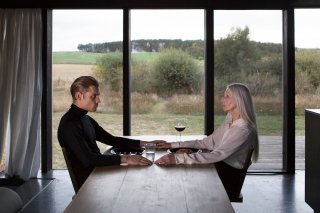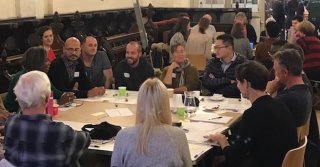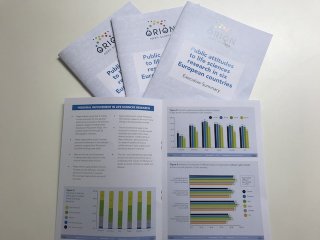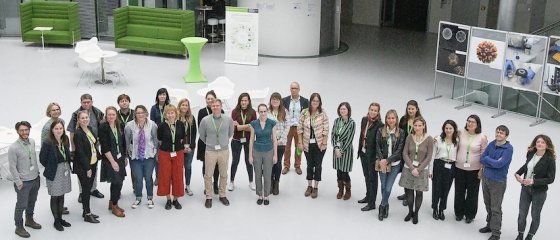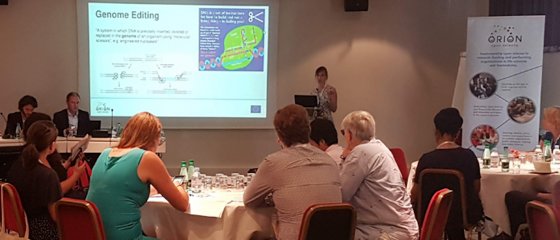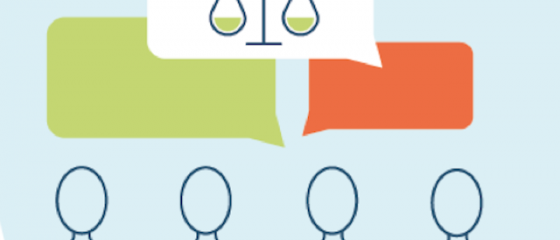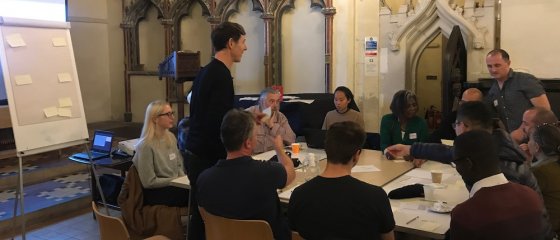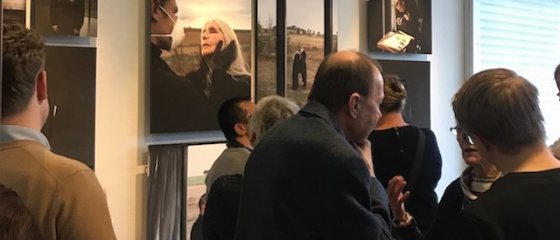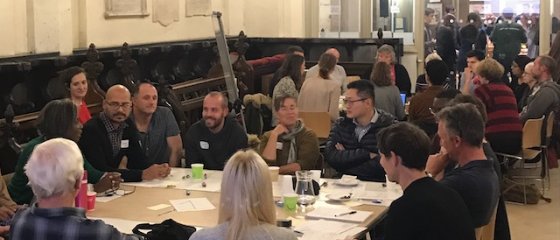The findings of the ORION public dialogue on genome editing in life sciences research were presented at an event on 11th March 2021. The findings bring together four public dialogue events held in the United Kingdom, Germany, Sweden and Czech Republic during 2019-2020. The dialogues sought to explore public attitudes to fundamental life sciences research when revolutionary genome editing technologies are used in order to understand when and how to engage audiences with emerging technologies. The public dialogue also sought to understand how public engagement strategies might differ between countries.
public dialogue
Join the ORION session on "Public Dialogues as a tool for public engagement" on 1 December during the Engage Festival 2020. The online Engage Festival brings together all of those keen to support the role of public engagement in reimagining our world and this year's theme is Engagement, innovation and change.
Do the public wish to be involved in the process of scientific research? If yes – how? These questions were asked in our public survey "Public attitudes to life sciences research in six European countries" and in the German and Swedish Science Barometers. The results from these studies will be presented at the 11th Forum Wissenschaftskommunikation 2018 on 8 October in Bonn.
The first workshop in preparation for ORION Public Dialogues took place on 22 February at the Babraham Institute in Cambridge. 15 delegates from all of ORION's partner institutions attended the event.
From ideas to real life projects: ORION Open Science 2nd Annual Meeting
“The ORION Open Science project has helped CEITEC both internally to introduce new processes within our institute, and externally to lead the way to Open Science in Central and Eastern Europe” said Jiri Nantl, Director of CEITEC Masaryk University in his welcome speech at the ORION Open Science 2ndAnnual meeting which took place in Brno, Czech Republic on 6-7 May 2019. All ORION partners and associate partners gathered to share and exchange knowledge and experience from project activities such as: stakeholder dialogues on Open Science, Citizen Science projects, public engagement and trainings conducted during the first two years of the project.
How do we create additional value for research?
The answer to this question is by incorporating different views in problem solving processes. This is precisely what we sought to explore during the ORION workshop on genome editing research at the Euroscience Open Forum (ESOF 2018) in July. With over 4,000 delegates, ESOF is the largest interdisciplinary science meeting in Europe and was the perfect place for this experiment, offering a unique opportunity for interaction and debate with scientists, innovators, policy makers, business people and citizens.
Inspiring story - Harvesting the fruits of citizens' collaboration in the development of the Genigma game
Long-lived institutional change has always been one of the goals of ORION. It’s relatively easy to find and convince like-minded people that responsible research and innovation (RRI) is important. However, in order to bring about real change, it’s important to engage with people all the way through an institution. Only then can true institutional change become a reality.
Inspiring story - Thinking differently through dialogue
To help open science up to a wider audience, ORION organised a number of public dialogues in the UK, Sweden, Germany and the Czech Republic during 2019-2020. One purpose of the dialogues was to explore public attitudes to genome editing technology, which has revolutionized scientific research in the past decade and has the potential for broad societal impact. The dialogues also aimed to understand how to engage the public on disruptive technologies and how public engagement strategies could vary between countries. Information about the potential use of the technology has led to a wide variety of different opinions and reactions from the public, which are not always based on scientific fact. The empirical evidence gathered during the dialogues will provide the basis of future communications strategies within the ORION institutions.
Inspiring story - Using Art as a way to level the playing field when discussing science
Can art help to explain scientific concepts? During the course of the ORION project, artist Emilia Tikka designed an art piece to represent a possible future scenario where it was possible to prevent aging using genome editing. The art piece was produced by Tikka while she was on a residency with the ORION partner, the Max Delbrück Center for Molecular Medicine in Berlin. There she spent time in a molecular biology lab and developed the concept for her art piece titled “ÆON - Trajectories of Longevity and CRISPR.”
Let's talk about genome editing
What does the public think about the new genome editing technology CRISPR and how should we talk about it? The ORION project has organised public dialogues in the Czech Republic, Germany, Sweden and the UK to find out. The aim with the public dialogues was to discuss the risks and opportunities of this disruptive technology and identify any concerns the public might have.
